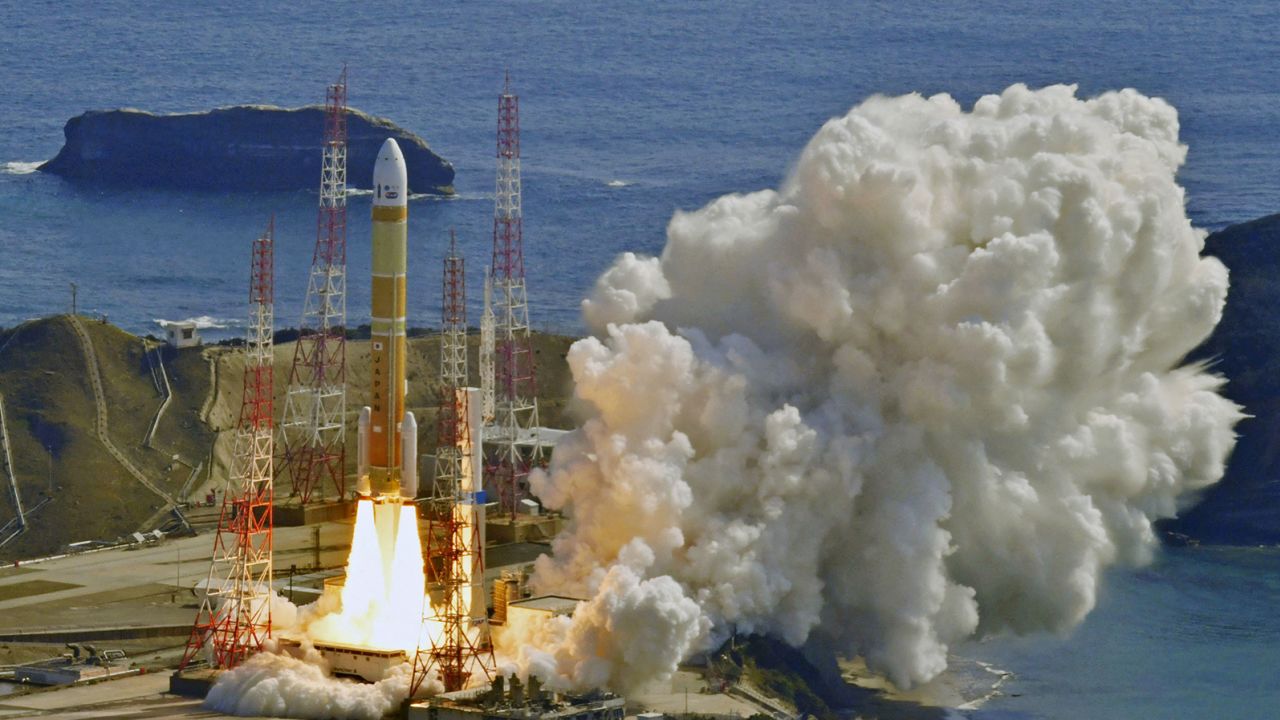Japan Destroys Flagship H3 Rocket in Failed Launch
The Japan Aerospace Exploration Agency (JAXA) stated on Tuesday that an attempt to launch its next-generation H3 space rocket failed, with controllers issuing a destruct command 15 minutes after liftoff as there was no possibility of achieving the mission....

0:00
/0:00
Facts
- The Japan Aerospace Exploration Agency (JAXA) stated on Tuesday that an attempt to launch its next-generation H3 space rocket failed, with controllers issuing a destruct command 15 minutes after liftoff as there was no possibility of achieving the mission.1
- This comes as the 57-meter tall H3 rocket's second-stage engine failed to ignite upon reaching space after being launched from JAXA's Tanegashima Space Center.2
- When the rocket exploded, it also meant that its payload, the Advanced Land Observation Satellite-3, was destroyed. According to Japan's space agency, the debris landed in waters east of the Philippines.3
- The H3 rocket is a medium-lift rocket designed by JAXA, billed as a cheaper alternative to SpaceX's Falcon 9 for launching commercial and government satellites into Earth's orbit, as Japan seeks to become a major player in the international space industry.4
- Japan's science minister Keiko Nagaoka apologized for this 'regrettable' outcome, stating the ministry would swiftly work with JAXA to determine what caused the failure. Last month, JAXA aborted the H3's first launch allegedly due to an electrical system problem.5
- The H3 rocket – Japan's first new series in more than two decades – can carry larger payloads than its predecessor, the H-2A, and the launch cost has been reduced by half per launch at about 50M yen ($368K) as design, manufacturing, and operation were simplified.6
Sources: 1CNN, 2The japan times, 3New York Times, 4BBC News, 5Spacenews and 6Associated Press.
Narratives
- Narrative A, as provided by The japan times. JAXA's launch was a complete failure, and the H3 manufacturer, Mitsubishi Heavy Industries, felt the short-term effects when its stock fell 1.8% in morning trade. More importantly, it will also have a long-term impact on Japan's future space policy, business, and technological competitiveness. Hopes were high that the new rocket would give the country a foothold in the increasingly competitive satellite launching business, but they have been dashed.
- Narrative B, as provided by Space.com. Tuesday's failed launch was undoubtedly a setback, but not a fatal one. As soon as Japan has located the problem, the next step will be to prove that the H3 is a reliable, user-friendly, and competitive vehicle for delivering satellites. While there's still a way to go, the H3 will potentially play a major role in the country's efforts to join others on the global space stage.






